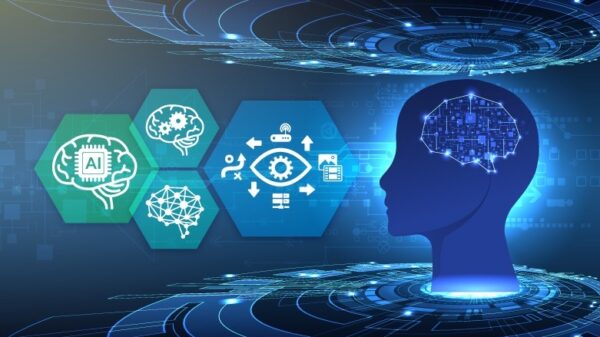Digital transformation is the process of leveraging emerging technology and supporting skills to build a robust new business model. It is a vital strategy for businesses to stay competitive and relevant in the digital age. However, digital transformation is not a one-time project, but a continuous journey that requires constant innovation, agility, and resilience.
Digital transformation trends are the key drivers and enablers of digital transformation, as they represent the latest technologies and innovations that can help businesses achieve their digital transformation goals. In this blog, we will explore some of the most prominent and impactful digital transformation trends in 2024, and how businesses can ride the wave of these trends to create value and growth.
AI and ML: Unlocking the Power of Data
Artificial intelligence (AI) and machine learning (ML) are the technologies that enable machines to perform tasks that normally require human intelligence, such as reasoning, learning, decision-making, and more. AI and ML are transforming various aspects of business, such as customer experience, operational efficiency, product development, and innovation.
AI and ML can help businesses unlock the power of data, which is the most valuable asset in the digital economy. By using AI and ML, businesses can collect, analyze, and act on data in real-time, and generate insights and predictions that can improve their performance and outcomes. AI and ML can also help businesses automate and optimize various processes and tasks, reducing errors, costs, and delays.
Some of the Examples of how businesses can use AI and ML are:
- Chatbots and Virtual Assistants: These are AI-powered conversational agents that can interact with customers and employees through natural language, and provide information, assistance, and guidance. Chatbots and virtual assistants can enhance customer satisfaction, loyalty, and retention, as well as employee productivity and engagement.
- Recommendation Systems: These are AI-powered systems that can provide personalized and relevant suggestions and offers to customers, based on their preferences, behavior, and context. Recommendation systems can increase customer conversion, retention, and revenue, as well as customer satisfaction and loyalty.
- Image and Video Analysis: These are AI-powered systems that can recognize, classify, and annotate images and videos, and extract useful information from them. Image and video analysis can be used for various purposes, such as security, surveillance, quality control, marketing, and entertainment.
- Natural Language Processing: This is an AI-powered technology that can understand, generate, and manipulate natural languages, such as text and speech. Natural language processing can be used for various purposes, such as sentiment analysis, text summarization, translation, transcription, and more.
AI and ML are the core technologies of digital transformation, and they can provide businesses with a competitive edge and a strategic advantage. However, AI and ML also require a high level of expertise and resources, and they pose some challenges and risks, such as data quality, privacy, ethics, and bias. Therefore, businesses need to partner with reliable and reputable AI/ML development services, that can provide them with the best solutions and support for their AI and ML needs.
Blockchain: Creating Trust and Transparency
Blockchain is the technology that enables the creation and management of distributed, decentralized, and immutable ledgers, that can store and verify transactions and data, without the need for intermediaries or central authorities. Blockchain is transforming various aspects of business, such as supply chain, finance, healthcare, and more.
Blockchain can help businesses create trust and transparency, which are the key elements of digital transformation. By using blockchain, businesses can ensure the security, integrity, and authenticity of their transactions and data, and eliminate fraud, corruption, and inefficiency. Blockchain can also help businesses improve their collaboration and communication with their stakeholders, such as customers, partners, suppliers, and regulators, and create a more fair and inclusive ecosystem.
Some of the Examples of how businesses can use Blockchain are:
- Smart Contracts: These are self-executing contracts that are encoded on the blockchain, and that can automatically enforce the terms and conditions of an agreement, without the need for human intervention or verification. Smart contracts can streamline and simplify various business processes and transactions, such as payments, escrow, insurance, and more.
- Tokenization: This is the process of converting real-world assets, such as property, art, or commodities, into digital tokens that are stored and traded on the blockchain. Tokenization can increase the liquidity, accessibility, and security of these assets, and create new markets and opportunities for investors and owners.
- Identity Management: This is the process of creating and managing digital identities that are stored and verified on the blockchain, and that can be used for various purposes, such as authentication, authorization, and verification. Identity management can enhance the privacy, security, and control of personal data, and reduce the risk of identity theft and fraud.
Blockchain is one of the most disruptive and innovative technologies of digital transformation, and it can provide businesses with a new level of trust and transparency. However, blockchain also requires a high level of technical and regulatory knowledge, and it faces some challenges and limitations, such as scalability, interoperability, and adoption. Therefore, businesses need to partner with skilled and experienced blockchain developers, who can provide them with the best solutions and support for their blockchain needs.
Conclusion
Digital transformation is a necessity and an opportunity for businesses in 2024, as it can help them create value and growth in the digital age. However, digital transformation also requires a holistic and strategic approach and a constant awareness and adoption of the latest technologies and innovations. Digital transformation trends are the key drivers and enablers of digital transformation, and they represent the opportunities and challenges that businesses need to embrace and overcome.
AI ML, and blockchain are some of the most prominent and impactful digital transformation trends in 2024, and they can help businesses unlock the power of data, and create trust and transparency. However, these technologies also require a high level of expertise and resources, and they pose some risks and difficulties. Therefore, businesses need to partner with reliable and reputable digital transformation services. who can provide them with the best solutions and support for their digital transformation needs.
If you are looking for a digital transformation consulting service, you can contact us at TRooTech. We are a digital transformation consulting service that can help you with your digital transformation needs. We have a team of highly qualified and experienced digital transformation consultants, who can help you with your digital transformation challenges and opportunities.
We are committed to delivering high-quality and cost-effective digital transformation solutions that can help you achieve your business objectives and outcomes. We are also flexible and adaptable, and we can work with your existing systems and processes, or help you create new ones.
If you are interested in our digital transformation consulting services, please contact us today. We would love to hear from you and discuss how we can help you with your digital transformation journey.
Thank you for reading this blog, and we hope you found it helpful and interesting.
Niraj Jagwani is an engineer who has co-founded a number of businesses in the domain of software development services. He has successfully helped clients across industries increase revenues, optimize processes, and achieve new milestones. He is a passionate writer and loves to exchange ideas.
























































































































































































